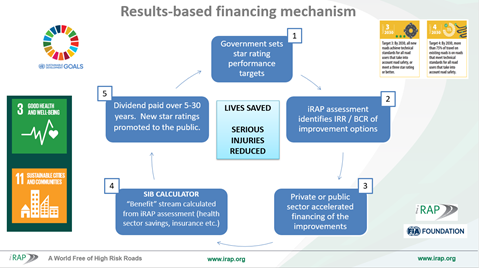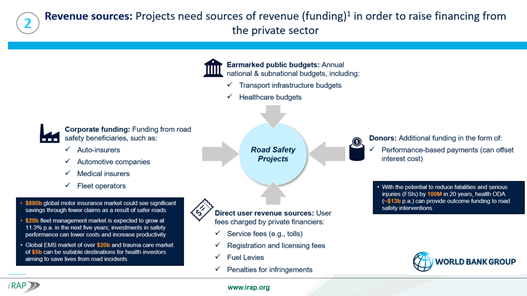Moral and market failure in road safety is leaving victims and the transport system vulnerable with few financial incentives for reform according to iRAP, yet results-based financing holds promise.
The true cost of road crashes, who bears them and the potential for impact investment to save lives were presented at the Australian Personal Injury and Disability Management National Conference (PIEF2021) held last week in Brisbane.
iRAP CEO Rob McInerney said 450,000 Australians will be killed or injured in road crashes between now and 2030 unless a sustainable results-based financing mechanism to fund road safety interventions is devised which aligns safety, fiscal and commercial interests.
“The health and insurance sectors bear the cost of road crashes but the system failures and solutions to reduce road trauma are in the design of our roads and vehicles and in the behaviour of road users. The road authority or vehicle industry does not currently have a budget for death and injury and this negates incentives and accountability to finance interventions.
“We are blind to the impact of injury and how unsafe our roads are. A lack of stakeholder accountability is at the heart of road safety market failure and the cost, tragically, is lives lost and life-long injuries borne by Australian families,” Mr McInerney said.
In many countries, road crashes consume 75% of hospital capacity for treating head injuries. Insurance premiums and payouts account for 1 per cent of Gross Domestic Product. The impact of road crash fatalities and injuries on businesses and families can be acute, with life changing injury requiring up to 70 years of care.
The source of the failure and potential solution lies with vehicle manufacturers, road users and the road infrastructure itself. The global vehicle fleet will double in the next 10-20 years and zero star cars are still being sold. Road user behaviour in terms of speed, alcohol and drug driving, fatigue, seat belt use and distraction still needs improvement. More than 40 per cent of roads are an unsafe 1- and 2-star standard globally, despite high return-on investment solutions existing.
“We need to bring these elements together to fund road safety interventions which can help avoid road trauma costs,” he said, “and global case studies of results-based financing and public private partnerships are demonstrating potential.”
Successful case studies from Brazil and the Transport Accident Commission (TAC) iRAP Road Injury Dashboard were presented. The Dashboard, informed by Victorian insurance data, is providing unique insights into the injury and crash types and total life-time claim costs associated with Victorian road trauma, to inform the real cost and actions needed. This data has already been used to show how many brain injuries, spinal injuries and limb fractures can be saved and where in the health systems those costs are reduced by raising roads to 3-star or better standard across the State.
The knowledge is now also available as a global resource through iRAP’s Vaccines for Roads initiative. This data is informing Impact Investment activities globally as part of the World Bank Group, iRAP and the FIA high-level panel project to develop Road Safety Bonds and capitalize on the opportunities associated with private investment in road safety in developing countries.
“Ultimately, improved road safety will save lives, save money and create jobs,” he said. “It’s a win-win-win scenario that we have a duty of care to embrace.”
The Personal Injury and Disability Management National Conference was held virtually from 13-14 July with the theme Connect, Discover, Evolve. It showcased initiatives that have achieved exceptional outcomes and industry best practice in motor accident (compulsory third party), workers’ compensation, disability and life insurance sectors.
To download a copy of the presentation, click, here.
For more information on Impact Investment in Road Safety, click here.




















